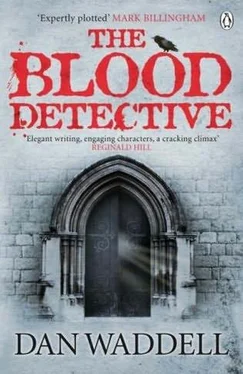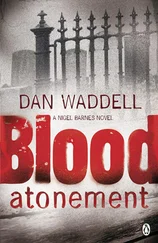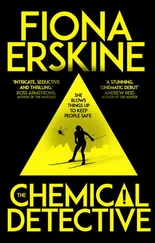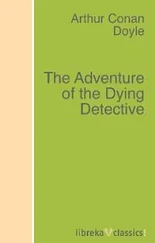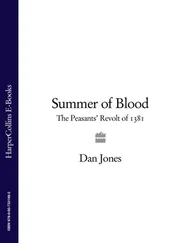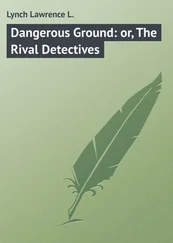When he finished the glass, he stood up. Not even allowing himself more than one glass in the last few minutes of his life.
'Don't do it, Dad,' Foster said, voice breaking.
'This life holds little more for me,' his father said. 'The cancer will kill me in a year. It will eat and eat away at me. I would rather retain some control and choose the time of my leaving.'
'What changed, Dad? You were so full of fight'
His father held up his hand to quieten him. Don't give me the first degree,' he said slowly. Euthanasia means "easy death" and I want it to be that way. Respect my decision.
There are some fights you can't win and there are some fights you don't want to win. Now you can leave if you want. I'll understand. You're implicated enough as it is.' As he stood up, he looked at Foster. 'One day you'll understand.'
His father went upstairs. Foster followed, not quite believing this was happening.
In his room, his father plumped up some pillows and lay down. Next to the bed on a table was the vial. Foster climbed on to the bed; tears stung his cheeks. Helplessness. There was nothing he could do. Fear. This man had always been there.
Nothing was said. They hugged. His father told him he loved him and was proud of him. Foster, breaking down, returned the gesture.
His father edged backwards on his throne of pillows. Then he picked up the vial, turned the top and emptied seven white pills into the palm of his hand. He looked at Foster, smiled, eyes wet. Then he threw the pills into his mouth and took a hefty swig of water.
'Now, this may hurt.' The killer was back, his voice dragging Foster from the brink.
He started to turn the screws.
Heather's car slammed to a halt on Bramley Road.
On the way, as they careered through the narrow, streetlit warren of Notting Dale, she had phoned through for an armed response team to assist them.
Then she turned to Nigel.
'Foster will keep himself alive as long as possible,'
she muttered, her jaw firm.
Her faith in him appeared unshakable. Nigel was desperate to believe her. It was only a half-hour from midnight.
They jumped out, Nigel clutching an Ordnance Survey map from 1893 and a small torch. He marched forwards, checking their position against the map, trying to work out where Pamber Street might have been. Above them the Westway, which carved through the area like a concrete river, pulsated with evening traffic. They walked along a short road leading down to an underground car park, Heather and the team following Nigel's steps.
Nigel could see as he passed a series of five-a-side football pitches that Pamber Street was no more, one of the streets razed when the overhead motorway was built. The map told him that Pamber Street had lain north of the Westway. With his finger he traced the angle of the road and looked up at one of the characterless brick blocks of flats that studded the area. He veered towards one. In the distance he heard a van pull up at speed. He turned to see it disgorge a troop of armed response officers. More should be on their way.
'Keep going,' Heather gasped. 'Find the flat.'
Nigel headed straight for a block that appeared to stand on the same patch of ground as Pamber Street.
Few of the flats were illuminated. There was the thud of footsteps on the ground as the armed team caught them up. Nigel and Heather reached the entrance and made for the stairs.
'Where now?' Heather asked breathlessly.
'Number 12,' Nigel said, bounding up the stairs.
The number of Segar Kellogg's shop. Instinct told him his descendant would have picked a flat of the same number. They reached the second level and made their way across the corridor linking the flats. The armed team was now alongside them. Nigel stopped outside number 12. No one said a word.
Nigel stepped back. His eyes glanced to his right, where he could see lights and vehicles descending on the area from all sides. Then they met Heather's. Her dark eyes were wide with fear, expectation. He felt his heart beat firm and insistent against his ribcage, as if attempting to force its way out.
The team of four men took up their positions, strapping on pairs of night-vision goggles. The flat was silent, no light from within. On the silent count of three, one officer battered the door and it fell with a sonorous thump. The others poured through shouting. Heather followed them, and Nigel's curiosity ushered him through in her slipstream.
The men marched around the flat screaming warnings. Nigel, his eyes not yet accustomed to the light, braced himself for the sound of a gun. Nothing came. The small living room was empty. The single bedroom, too. They burst through into the kitchen: nothing. The air was fusty, sweet-smelling. In the darkness he heard Heather's voice.
'Are you sure it was number 12?' she screamed, her tone accusatory.
'Yes,' he whispered hoarsely.
He was certain. He felt himself shrink visibly.
Another group of officers appeared in the doorway.
One of them flicked a light switch, lighting the room, making Nigel squint.
In the middle of the small, spartan sitting room was a large, white fridge-freezer; the only item in there save a wooden chair. Nigel and Heather looked at each other. One of the ART pulled the fridge door open. Empty but for half a carton of milk. He pulled the first drawer of the freezer open. Nothing. Then the second. Immediately he stepped back. Heather moved in, Nigel at her shoulder. He could see a bed of ice stained watery-red. On it lay a pair of hands and what appeared to be a wig, though a flap of blue-black skin betrayed its true origin.
Darbyshire's hands, MacDougall's scalp. They had the right place.
'Too late,' Heather drawled numbly.
The ringing in Foster's ears was incessant. It drowned out everything: the voice of his potential killer, the quickening beat of his heart, even his own pathetically shallow breaths. Speaking was too much effort. The pain in his body from his many wounds had drifted away. Indeed, he could not feel his body at all. The only sensation was the ringing. Suddenly it stopped.
He felt light, ready to float free. Peace and contentment flowed through him.
Then he felt the bed beneath him once more, as if slammed back into his body, aware immediately of the agony from his suppurating leg and shattered collarbone in particular. He opened his eyes and gasped: the pain from his ripped jaw shot through his entire body, yet he was incapable of emitting anything other than a low moan in protest.
For those few seconds he wanted to be calm and peaceful once more, away from his wracked, fragmented body and the smell of old cardboard.
'Thought you'd done a Graham Ellis and jumped the gun,' he heard Hogg say.
The voice was nearby. What was he doing now?
Foster could sense a presence to his left.
'Not long now,' Hogg added. 'Then it'll all be over.'
Foster had no more fight. He closed his eyes, seeking the soothing balm of unconsciousness. There came the first stab of pain on the thumb knuckle of his right hand. A thin piercing stroke with a knife.
He knew at once what it was.
The number 1.
Nigel stumbled out of the flat, needing air, the image of the severed body parts repeating in his mind.
Policemen poured past him as he made his way down the stairs, mingling with a trail of confused residents forced grudgingly from their flats a few minutes before midnight, many in their nightclothes. Nigel did not know what to do with himself. Foster was certain to be dead; the killer had won.
He turned and glanced back at the functional brick building, ignoring the chaos around him. Two centuries ago, under a similarly brooding night sky, at the same hour, Esau Hogg had followed his father and watched him slaughter an innocent man. A few days later, within fifty yards of where Nigel now stood, Esau's father had ushered his family to the basement beneath the shop, and butchered them.
Читать дальше
